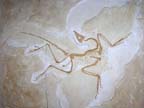 |
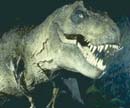 |
 |
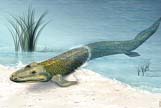 |
 |
Produced
by the Population Genetics and Evolution class, Furman University |
||||
 |
 |
 |
 |
 |
Produced
by the Population Genetics and Evolution class, Furman University |
||||
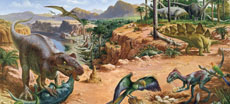 |
The
Jurassic: Plesiosaurs |
 |
||
| Plesiosaurs
were a dominant group of marine reptile. The most distinguishing characteristic
of these creatures was the disproportionately long necks of many species.
Fossils indicate that plesiosaurs varied in neck length, with both short-necked
and long-lecked forms (White 2003). The longest species, Elasmosaurus,
lived during the Cretaceous and was 46 ft long (Wikipedia 2010). Because
of the structure of the vertebral column, they had very limited movement
and support of their necks but still had the ability to reach and strike
down on their prey (Smith 2001). Plesiosaurs also had four highly maneuverable
paddle-shaped limbs, which probably benefited their hunting ability by
making them quicker than most of their prey (Dinosaur Den 2010). Plesiosaurs
are believed to have been carnivorous due to their sharp teeth. Since
these creatures are believed to have some reptilian-like characteristics,
they could have possibly given rise to some of the reptiles that we see
today. Their extremely aggressive manner and well adapted physical traits
made them an unrivaled predator in the ocean during their time.
Page by Pete Calomiris |
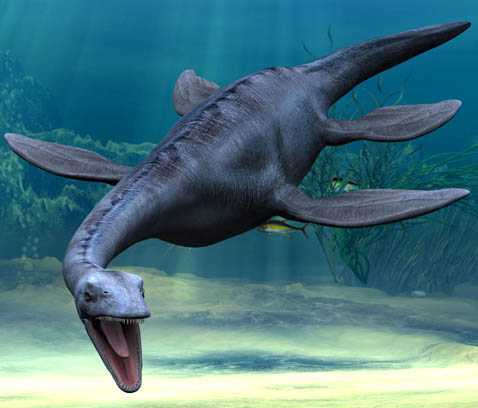 |
| Plesiosaur. Picture provided by: plesiosauria.com | |
| Dinosaur Den. 2007. Plesiosaurs. Dinosaurden.co.uk. Accessed March 30, 2010. Smith AS. 2001. Plesiosaur: Neck Function. The Plesiosaur Directory. Accessed March 30, 2010. White AT. 2003. Lepidosauromorpha: Plesiosauria. Palaeos.com. Accessed March 30, 2010. Wikipedia. 2010. Elasmosaurus. Accessed April 2, 2010. |